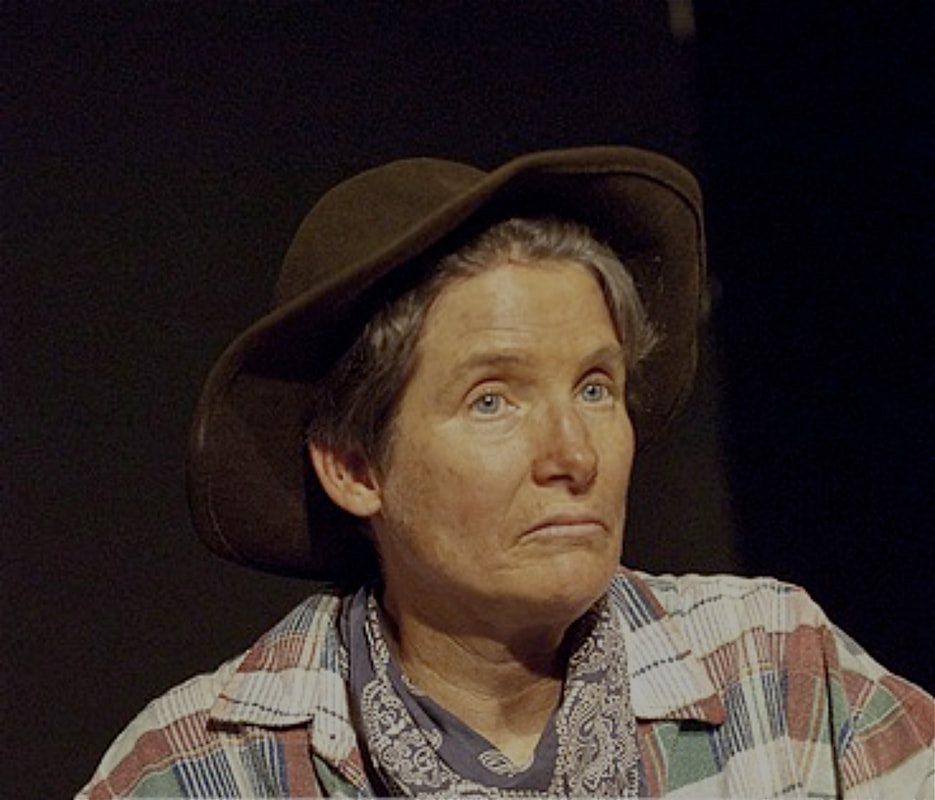Theatre, as playwrights know, cannot make allowances for the disorderliness of real life, because it has its hands full with a reality of its own: real people in real (often uncomfortable) seats, observing performances with real actors that are taking place in real, contemporaneous time. For this reason, a play must do certain very specific things, and it must do them within relatively rigid time frames. For example, within the first few minutes, the audience must have a very clear understanding of what they are watching and why. If, after ten minutes, they are still struggling for context, they are likely to become frustrated or bored—unable to invest themselves in the game of “let’s pretend,” which is what puts the “live” in “live theatre.”
Ideally, at the halfway mark, something should occur to substantially raise the stakes. After all, the audience’s investment in terms of time and attention is mounting, and the playwright has an obligation to up the ante. If the audience engagement is everything it should be, they should be needing some kind of “seventh-inning stretch” about three-quarters of the way through. And then, of course, there are those last three minutes, for a definitive resolution or a definitive commitment to non-resolution. (“Game called on account of rain…”)
In fact, thinking about theatre in terms of a spectator sport might be more useful than storytelling. A good play should keep the audience literally on the edge of their seats, like a football game that’s gone into overtime.
So there is this issue of craft. The historical truth must be bent to fit the framework. A tight play that plays fast and loose with historical facts will work far better than a poorly structured play with rigid adherence to biographical chronology. The playwright must be willing and able to take liberties. These are separate issues. The willingness means being able to step away from the research, to lose the sense of reverence for the literal, biographical truth. The playwright needs to make the character live, and she can only do this by breathing her own life force into the character.
This is dramaturgical CPR is a process. The playwright probably has a passion for the historical subject, and it can feel blasphemous and presumptuous to appropriate the facts. Sometimes I have to remind myself that a poorly written play will not be much of a tribute to my subject… or myself!
The first few drafts are usually hybrids, lumbering awkwardly down the runway of my imagination, still encumbered by weighty historical detail. The prototypes become lighter, more streamlined, and somewhere around the fourth draft, there is usually dramaturgical lift-off.
Outside permission may also be required, because adapting history can raise legal issues of libel, privacy, or copyright violation. Is the adaptation going to involve text from letters, journals, or other documents? Who owns the rights for these materials? Is the playwright intending to adapt a book? The Dramatists Guild is a great resource for contracts, as well as information about using historical characters. Their website has publications that address a number of pertinent questions.
Adapting does involve special circumstances, but the bottom line is still the same: high stakes and uncertain outcome.
Sample adaptation:
From Calamity Jane Sends a Message to Her Daughter
CALAMITY JANE: I met Bill when I was still wet behind the ears. Just a kid. See I was orphaned when I was fourteen, and I learned to hustle pretty good… (To herself.) Had to. (After a pause, she turns back to the audience.) First time we met, we was in a poker game together, an’ I beat him. I beat him real bad. Bill don’t like to lose, ‘specially with folks watchin,’ so he rears up an’ calls me a cheater. So I says… (Slowly, savoring the moment.) “Hickok, you play cards so dumb I’d have to cheat to lose!” (Smiling.) Well… everybody’s laughin’ at that one, so he pulls out his gun, an’ then Molly behind the bar yells out… (Imitating a shrill female voice.) “Put that back, Bill! That there’s a gal!” (Smiling.) Well, that done it! He just stands there lookin’ at me like a hog starin’ at a wristwatch. An’ then all of a sudden he throws his gun on the table an’ hollers, “Drinks for the house …!” (Hoisting the bottle.) “… I want all of ya’ll to drink to this here gal—the finest poker player in the Territories!”
[Originally published in Seasons:The Quarterly Journal of the International Centre for Women Playwrights, July 2010.]


 RSS Feed
RSS Feed
